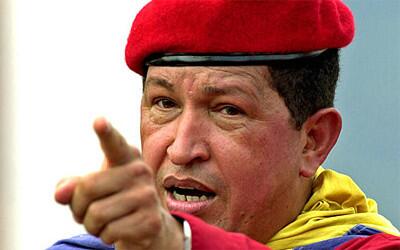The charismatic leader won the loyalty of the impoverished with his socialist revolution, but he left the nation deeply divided and did little to help it develop, analysts say.
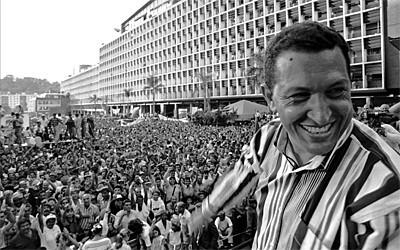
Hugo Chavez speaks at the Plaza Caracas on Feb. 4, 1998, in Caracas, Venezuela, during celebrations for the anniversary of the 1992 coup. A ban on citizens visiting the United States and the scorn of his country’s wealthy elite did not keep former coup leader Chavez from becoming a hero to millions of Venezuelans or winning the 2012 presidential race. (Jorge Santo / Associated Press)
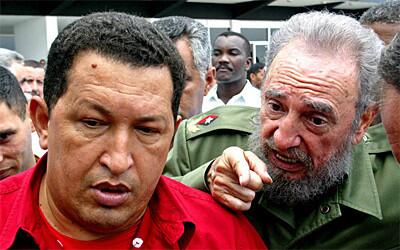
Chavez and Cuban President Fidel Castro speak with reporters minutes before Chavez left for Jamaica at Havana’s Jose Marti International Airport on Aug. 23, 2005. The day before, U.S. religious broadcaster Pat Robertson suggested that American agents assassinate Chavez to stop his country from becoming “a launching pad for communist infiltration and Muslim extremism.” (Jorge Rey / Associated Press)
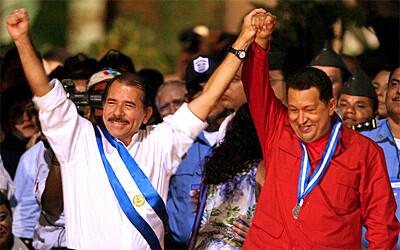
Nicaraguan President Daniel Ortega and Chavez hold hands and wave on Jan. 10, 2007, in Managua, Nicaragua, during Ortega’s inauguration. (Yuri Cortez / AFP/Getty Images)
Advertisement
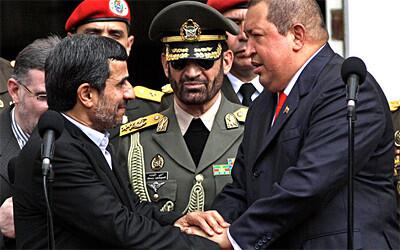
Iranian President Mahmoud Ahmadinejad and Chavez hold hands after the Iranian’s arrival at Miraflores Palace on Jan. 9, 2012. Ahmadinejad visited with Chavez as tensions rose with the U.S. over Tehran’s nuclear program and a death sentence against an American man convicted of working for the CIA in Iran. (Ariana Cubillos / Associated Press)
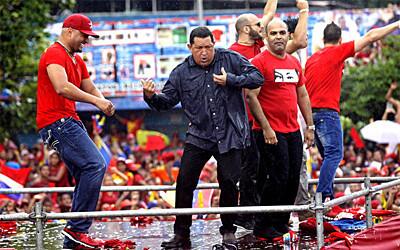
Chavez dances after speaking at his closing reelection campaign rally in Caracas on Oct. 4, 2012. (Ariana Cubillos / Associated Press)
